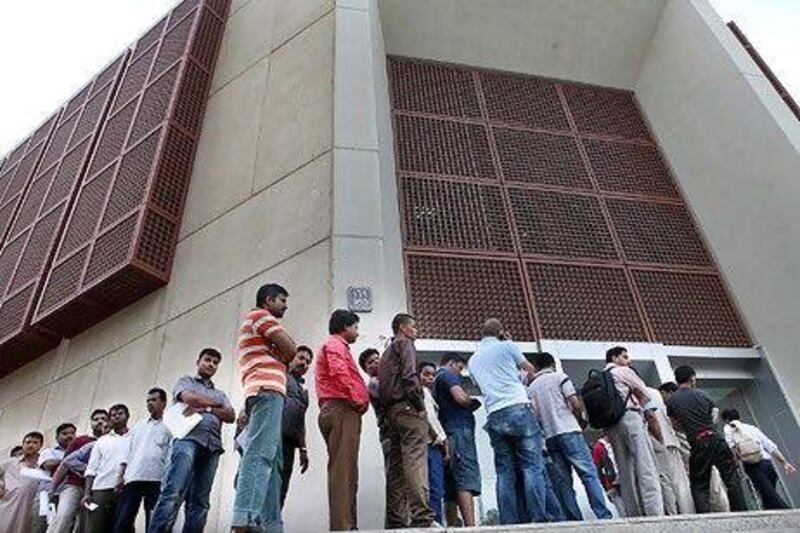The Emirates Identity Authority (Eida) is apologising for the long delays faced by people trying to obtain their ID cards.
Residents in Abu Dhabi, Dubai and Sharjah have had to endure waits of up to four hours at post offices in recent weeks.
Dr Ali Al Khouri, director general of Eida, said the waiting time should be a fraction of what it currently is.
"Customers should be able to receive their cards within five days and have a waiting time no longer than 10 minutes," Dr Al Khouri said.
But Emirates Post staff at various post offices are struggling to cope with the overwhelming number of customers seeking their ID cards.
Eida announced yesterday that it would extend the period for ID card pick-ups from the Emirates Post offices from 30 days to 90, from the day the client receives their notification.
Other immediate measures taken by Eida and Emirates Post include increasing the hours and number of employees at the high-demand offices, and keeping some post offices open on Friday.
Emirates ID registration deadlines have already passed in Abu Dhabi (April 1) and Sharjah (February 1). The deadline for Dubai is June 1.
These dates are a significant factor in the record numbers of cards being issued across the Emirates, said Dr Al Khouri.
"People tend to wait until the last minute to register, so we are printing the largest rate of IDs ever, around 30,000 to 35,000 a day," he said.
Dr Al Khouri said a streamline of the registration process has reduced waiting times to 10 minutes, compared with the three or four hours it used to take.
"From 2005 to 2009 we registered a total of one million, but since then we have processed more than 5.5 million applicants," he said.
Ibrahim bin Karam, chief executive of Emirates Post, agreed that the surge of customers and resultant delays were due to the great increase of identity cards required to be delivered. "We deliver on average 32,000 cards per day across the country," Mr bin Karam said.
Lines stretching out the door and around the building have become a daily sight at the capital's main post office.
Rajan Seaverir, an Indian security guard at a pipeline in Sweihan, had to take most of the day off work to obtain his card.
"No buses or drivers were provided and I am over one and a half hour's drive away," said the frustrated Mr Seaverir. "I had to leave at 10.30am, arrived at 12pm and have been waiting for almost five hours now. This is too much."
Azhar Mehmoud of Pakistan received a message saying his card had been distributed to a courier for delivery, before a second message told him to go to the Abu Dhabi post office.
"I've been waiting for four hours," Mr Mehmoud said. "I applied in Mussaffah, but had to take time from work to come here. Why is there only one office for this many ID cards?"
Mohammad Shoja of Bangladesh said he had to come to the city three times from Mafraq, where he lives.
"The first time I got the message they told me to come back in 10 days; the second time same thing," Mr Shoja said. "Today they are telling me to come back again in two days."
Eida also said it had not charged people for delivery for more than two years.
"If we continued to deliver then we would have had to pass on the costs to the customers which we wanted to avoid," said Dr Al Khouri.
Eida said it had asked Emirates Post to begin delivering IDs in packages to companies for distribution among their employees to lessen the burden.
It is also considering decentralising the printing process, to allow residents to get their cards at the same time and place that they apply for them.
Delivery of cards by courier or to individual post office boxes, and by electronic kiosks, are planned by the end of the year.
But for now, people still have to put up with long lines that extend out into the increasingly hotter climate.
"This has to change and fast," said Abu Al Hussain, a Bangladeshi tailor who had been waiting for more than four hours, mostly in the sun. "We are losing time and patience."






